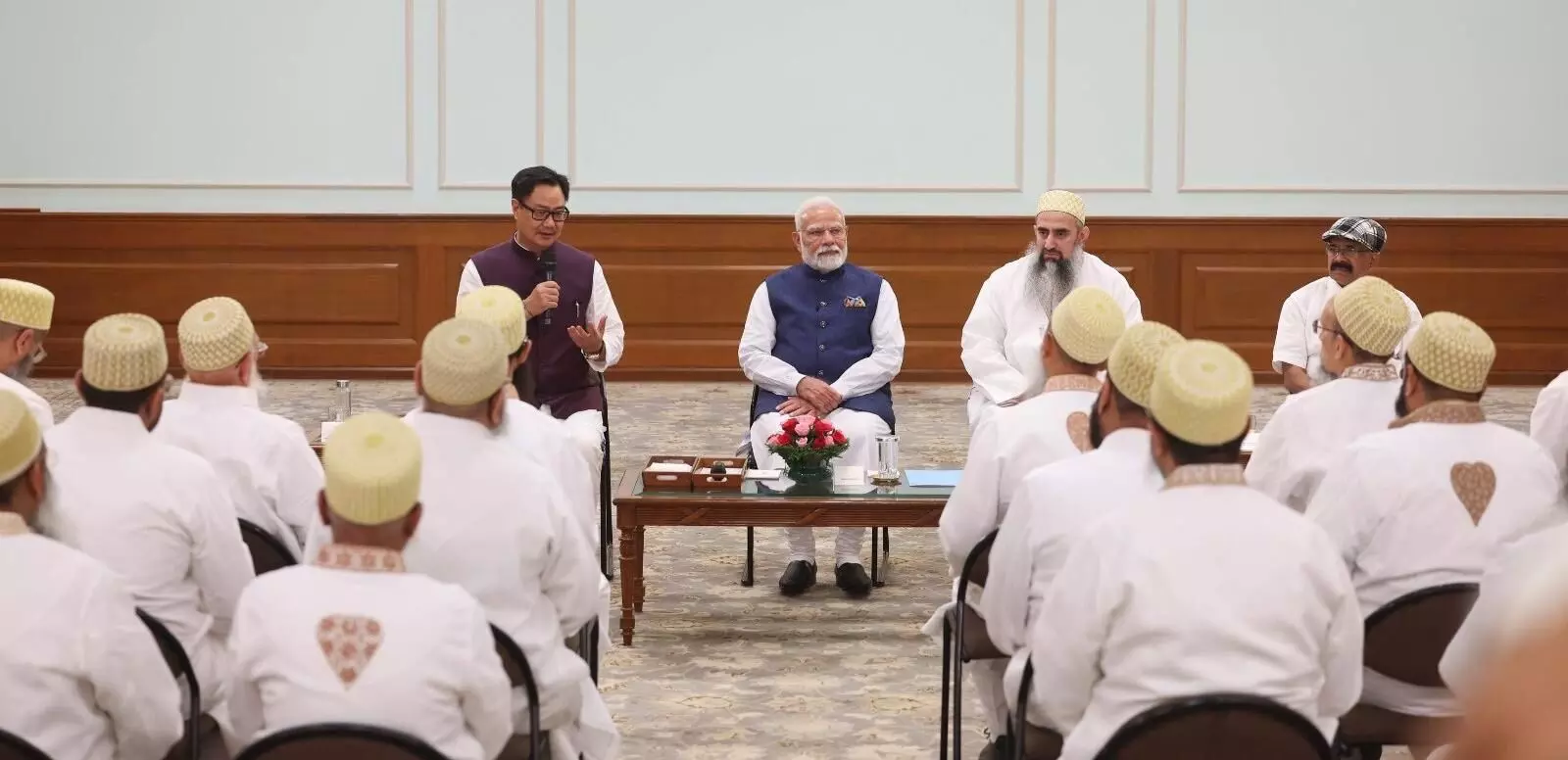
New Delhi, April 18 -- On April 17, 2025, Prime Minister Narendra Modi met with representatives of the Dawoodi Bohra community in New Delhi, shortly after the enactment of the Waqf (Amendment) Act, 2025. The meeting focused on the new law's impact, particularly its provisions that exempt the Bohra community from certain Waqf Board regulations-an exemption they have been advocating for over many years. During the discussion, Bohra leaders expressed their appreciation for the government's efforts and noted that the amendments would help them manage Waqf properties more effectively. They shared examples of longstanding property disputes in areas like Bhindi Bazaar in Mumbai, which they said had stalled development projects. Union Minister of Minority Affairs Kiren Rijiju also attended the meeting. He reaffirmed the government's intention to support minority communities and emphasized the importance of trust and inclusive development through the government's vision of "Sabka Saath, Sabka Vikas, Sabka Vishwas."
The Dawoodi Bohra community, a Shia Muslim sect, has consistently sought independence from state Waqf Boards, citing their distinct administrative and religious traditions. According to community leaders, the new law finally addresses their demand for control over their own religious endowments. However, the legislation has drawn criticism from other Muslim groups. These organisations argue that the changes weaken the role of Waqf Boards and could infringe on constitutionally protected religious rights. Several petitions challenging the Act have been filed in the Supreme Court, which is currently reviewing the matter. The Waqf (Amendment) Act, 2025, was passed after detailed discussions in Parliament and the submission of recommendations by a Joint Parliamentary Committee led by BJP MP Jagdambika Pal. The stated aim of the amendments is to improve the administration of Waqf properties through increased transparency and efficiency.
Published by HT Digital Content Services with permission from Millennium Post.
